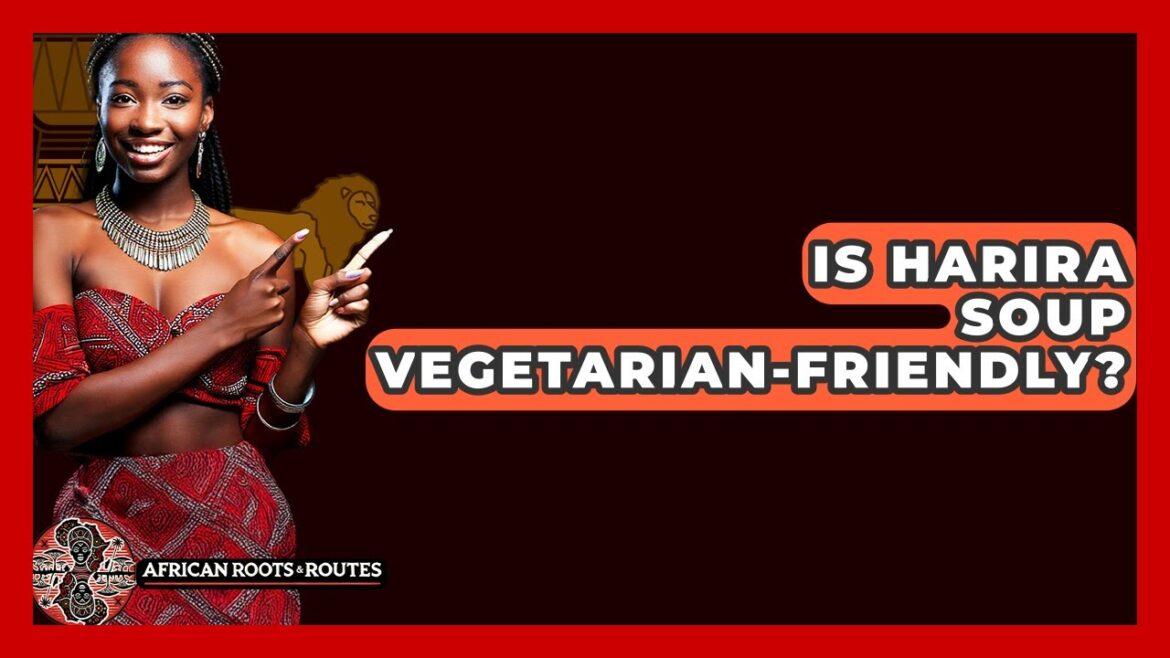Is Harira Soup Vegetarian-friendly? In this video, we dive into the world of Harira soup, a cherished dish from Morocco that is known for its hearty and satisfying qualities. This traditional tomato-based soup is not only a staple in Moroccan cuisine but also showcases a delightful blend of legumes, fresh herbs, and aromatic spices that create a memorable culinary experience. While the classic versions of Harira often include meat, we’ll discuss the many vegetarian adaptations that allow everyone to savor this dish while adhering to their dietary preferences.
We’ll highlight the essential ingredients that make vegetarian Harira just as flavorful and nourishing as its meaty counterpart. From lentils and chickpeas to a variety of vegetables, the vegetarian versions maintain the essence of this iconic soup. You’ll also learn about the importance of Harira during fasting periods and how it serves as a fulfilling meal that brings people together.
Join us as we explore the versatility of Harira soup and share tips on how to serve it for an unforgettable dining experience. Don’t forget to subscribe to our channel for more delicious recipes and cultural insights from Africa!
⬇️ Subscribe to our channel for more valuable insights.
🔗Subscribe: https://www.youtube.com/@AfricanRootsandRoutes/?sub_confirmation=1
#HariraSoup #VegetarianRecipes #MoroccanCuisine #HealthyEating #SoupRecipes #VeganOptions #CulinaryTraditions #LegumeRecipes #SpicySoup #ComfortFood #PlantBased #FastingMeals #CulturalCuisine #NutritiousMeals #RecipeIdeas
About Us: Welcome to African Roots and Routes, your go-to destination for exploring the rich tapestry of Africa’s culture, history, and landscapes. Our channel is dedicated to uncovering the diverse stories and traditions that shape the African continent, from ancient civilizations to contemporary movements.
Is harira soup vegetarian friendly? If you are curious about whether harira soup is suitable for a vegetarian diet, you are in for a treat. Harira soup is a traditional Moroccan dish that is rich and hearty. It is primarily a tomato-based soup that features legumes such as lentils and chickpeas, fresh herbs, and warm spices like turmeric, cumin, ginger, and cinnamon. This combination creates a flavorful experience that many people love. Typically, the classic versions of harira contain meat, often lamb, beef, or chicken, and sometimes include soup bones for added flavor. However, the good news is that there are many vegetarian and even vegan variations of this beloved soup. These adaptations allow everyone to enjoy the deliciousness of harira without compromising their dietary choices. In Moroccan cuisine, harira is known for its versatility. Vegetarian versions of harira omit the meat but still maintain the soup’s essence. Instead, they relying on the robust flavors of legumes, vegetables, and spices to create a filling and nutritious meal. Common ingredients in vegetarian harira include onions, celery, garlic, tomatoes, lentils, chickpeas, and a blend of aromatic spices. To make the soup even heartier, some recipes incorporate winter vegetables like broccoli, carrots, and parsnips. These additions not only boost the nutritional value, but also enhance the overall flavor profile. Vegetarian harira is particularly popular during fasting periods such as Ramadan, where nourishing and easy to digest meals are essential. The soup’s rich protein and fiber content from the legumes make it a sustaining option that keeps you satisfied. To serve vegetarian harira, it is often accompanied by lemon wedges and fresh herbs. These garnishes brighten the flavors and add a refreshing touch. Warm bread is also a common side, making it a comforting meal. In summary, while traditional Harira soup is not vegetarian due to the inclusion of meat, there are many authentic vegetarianfriendly versions available. These variations keep the soup’s characteristic warmth, spice, and nutritional benefits intact, making harira a flexible dish that caters to vegetarian diets while celebrating its cultural significance in African culinary traditions.

